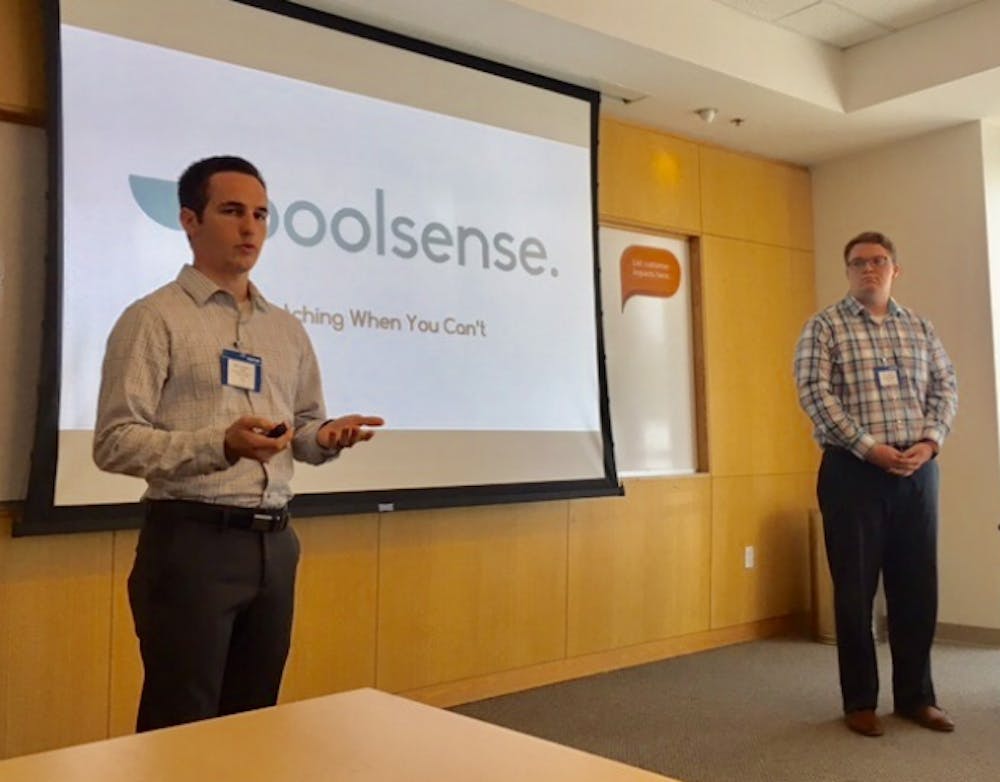Halen LLC, an ASU startup operated from the ASU Polytechnic campus, wants to make keeping an eye on kids at the pool as simple as checking your phone.
The company's journey began last year when longtime friends and co-founders Grayson Allen and Kevin Hale decided to give one of their many startup ideas a real shot. The idea originated from a story that Allen, an engineering and business undergrad, had heard while working as a lifeguard for the city of Mesa.
"I heard the story of this woman," Allen said. "She put her son down for a nap, and the other child was playing in the other room, so she thought her kids were safe, so she went to use the restroom. While she was in the restroom, her son escaped from his room, he made his way through the back door and the landscapers had left open the pool gate that day when they were working. And so, he went through the pool gate and drowned."
Allen acknowledged that the incident did not result from malicious behavior, but something could still be done to prevent that sort of tragedy from reoccurring. After consulting Hale and recruiting Curtis Mackay, an electrical engineering graduate from ASU, the team got to work on Poolsense.
"Poolsense is a pool monitoring system, at first for residential use," Allen said. "There's a pool unit that has various sensors that will detect the chemical nature of your pool as well as detect if a human body enters the pool when you're not expecting it."

GIF by Oliver Sin. Parents need to keep an eye on the pool.
The system then relays all the data collected by the sensor to an app designed by Hale, who is majoring in software engineering. The Halen team says that the app is one of the defining features of Poolsense, something that competitors in the space have yet to implement.
"At least in the United States, we are the only one of the competition to have a mobile application," Hale said.
Having a mobile app means that the Poolsense system comes to the user, rather than the reverse. This makes pool monitoring easier and more readily accessible to busy parents. Even for on-duty lifeguards, keeping an eye on children at the pool poses some serious challenges.
"Especially at public pools, I also work at a public pool, little kids will just do whatever they want when no one's watching," said Jared Kahler, a lifeguard at the Sun Devil Fitness Complex pool. "Most saves are caused by people, younger kids that are in the shallow end that just stray too far and then can't reach the bottom anymore and then just start drowning."
The lifeguards at the SDFC said that some lifesaving processes, if automated, could drastically help them, and even parents, do their job.
"These kind of things, the small things matter," Abhishek Pharande, another lifeguard at the SDFC, said. "Like calling EMS, if that is automated by just pressing a button."
While automated calls to EMS are not on Halen's agenda, the company does plan to link the Poolsense system with outdoor cameras and to track temperature, pH and chemical balances in the future.
Reach the reporter at sdeadric@asu.edu or follow @deadrick_sam on Twitter.
Like The State Press on Facebook and follow @statepress on Twitter.




